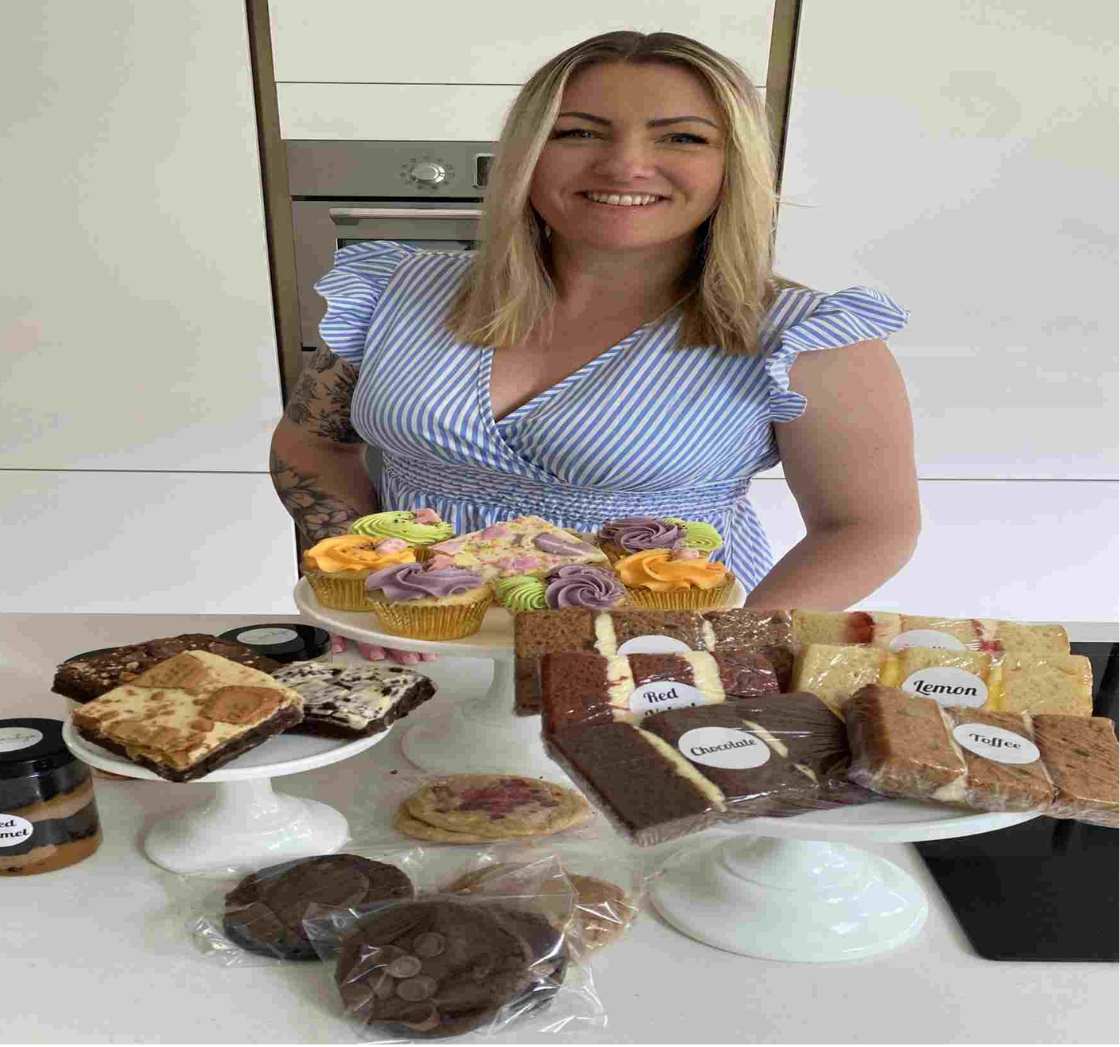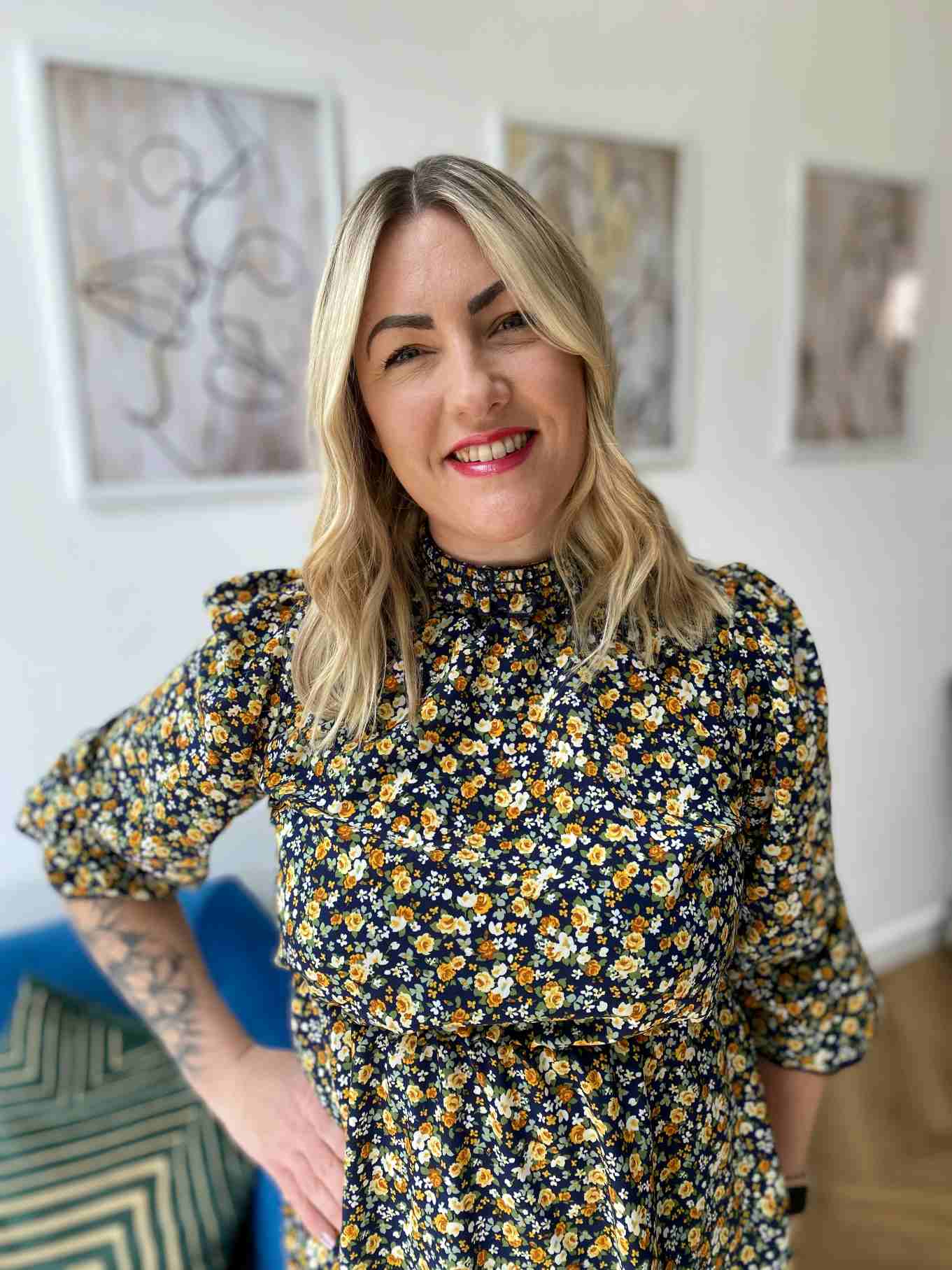In 2011, Candice Bannister began sharing her home-baked cakes on social media; the next thing she knew she had started a baking business. After nine years of hard work, Candy’s Cupcakes grew into a family-run business with a dedicated kitchen, located in Ashton-under-Lyne, Greater Manchester, making bespoke cakes. It was then that she contacted the Business Growth Hub for more advice and guidance on growing the business and to realise her ambition to ship her products nationwide.
And then the pandemic hit... When the country went into lockdown, many celebratory events had to be postponed, causing Candice to experience a significant drop in cake orders. However, even during the most dreadful times, there's always a need for a treat. Candice recognised that people still desired happiness and cakes, so she changed, from shipping cakes to event venues, to delivering them directly to customers’ letterboxes. Their “Cake in a Box” filled the gap in the market perfectly and they saw an exponential increase in orders from everywhere in the country.
Working alongside the determined lady at the helm are the specialist advisors from the Manufacturing Team of Business Growth Hub. We had the opportunity to catch up with Candice Bannister, the founder of Candy’s Cupcakes, and learn more about her incredible journey of business development.
Candice, the pandemic and lockdown period was a crucial moment for your business development journey. Can you share with us more details during that period?
Candice: Yes, we planned to expand our business and start shipping our product to event venues nationwide in 2019 before the pandemic. When everything was set, the pandemic worsened with the government announcing the lockdown measures countrywide. Since all event venues shut down and celebration events were postponed, we saw a massive cancelling of orders in the first week. At that moment, I really thought that I would lose my business and I needed to put my staff on furlough. It was such a dreadful moment.
However, we saw that our peer, who has a shop in the high street and was impacted most by the measures, had yet to throw in the towel, so we decided to fight on. We expanded our website to take orders directly from the customers and told them that we could ship the cakes they ordered directly to their letterboxes. The “Cake in a Box” is four slices of cake that can go through a letterbox, which was our best-selling product during the pandemic, and they are still available to order on our website.
Although people were not allowed to gather, they still needed to celebrate those special occasions, and the “Cake in a Box” that could go through a letterbox filled those gaps in the market perfectly. We saw an exponential increase in orders everywhere in the country and our company’s online reputation took off. It was a good problem but also a great challenge for a small business in every aspect, from processing orders, production, and packaging to logistics. We needed to hire extra people to handle the demands and expand our kitchen space.
You mentioned you started contacting the BGH in 2019 when you were hiring. Can you tell us more about why you brought in outside consultants and how BGH supports your company’s growth?
Candice: I was terrified when it came to hiring my first employee. I didn’t know what to expect and wanted to ensure I got it right. Since I had no peers to turn to, I approached the Business Growth Hub for professional advice and mentorship. Having someone completely independent who could oversee my business goals, whether I was on the right track, or what things I need to be considering in our long-term business plan is crucial for us in our business development journey.
After the pandemic, we continued our contact with the Business Growth Hub. We have been introduced to various people and suggested different programs we could participate in, such as the Recipe for Success programme. As our business grew, we moved to a large industrial warehouse and hired over 10 staff, we were introduced to Martin Hyman, one of the Business Advisors in the Manufacturing Team of Business Growth Hub, by Kelly Gray, GC Business Growth Hub’s Account Manager for Tameside.
After discussing our production process with Martin, he recommended that one of our team members, Amy Walker, join the Lean Champion cohort programme, and we subsequently re-arranged the production line to enhance efficiency. By re-arranging how the worktables were located and where the tools and ingredients were stored, and bringing in more technology into the kitchen, we have tremendously improved our productivity, reducing a lot of backtracking in the production process. I immediately acknowledged that after those physical changes, the general mood of the staff enhanced as everything they needed was more readily on hand. This also eventually helped us to implement the Standard Operating Procedure (SOPs) in our production process.
You mentioned you started contacting the BGH in 2019 when you were hiring. Can you tell us more about why you brought in outside consultants and how BGH supports your company’s growth?
Candice: I was terrified when it came to hiring my first employee. I didn’t know what to expect and wanted to ensure I got it right. Since I had no peers to turn to, I approached the Business Growth Hub for professional advice and mentorship. Having someone completely independent who could oversee my business goals, whether I was on the right track, or what things I need to be considering in our long-term business plan is crucial for us in our business development journey.
After the pandemic, we continued our contact with the Business Growth Hub. We have been introduced to various people and suggested different programs we could participate in, such as the Recipe for Success programme. As our business grew, we moved to a large industrial warehouse and hired over 10 staff, we were introduced to Martin Hyman, one of the Business Advisors in the Manufacturing Team of Business Growth Hub, by Kelly Gray, GC Business Growth Hub’s Account Manager for Tameside.

After discussing our production process with Martin, he recommended that one of our team members, Amy Walker, join the Lean Champion cohort programme, and we subsequently re-arranged the production line to enhance efficiency. By re-arranging how the worktables were located and where the tools and ingredients were stored, and bringing in more technology into the kitchen, we have tremendously improved our productivity, reducing a lot of backtracking in the production process. I immediately acknowledged that after those physical changes, the general mood of the staff enhanced as everything they needed was more readily on hand. This also eventually helped us to implement the Standard Operating Procedure (SOPs) in our production process.
Amy, you have attended the Lean Champion cohort programme the BGH offers. What is your experience on the programme?
Amy: Joining the programme provided me with the chance to look at our production process from a different perspective. Having seen the benefits of Standard Operating Procedures (SOPs) in the Lean Champion Programme, I have championed the project of implementing SOPs into the production process, with the aim of ensuring the quality of our product and controlling the cost. In layman’s terms, this was in the form of introducing an internal cookbook for use by our employees, which contains detailed measurements of the ingredients and step-by-step procedures for the production process for every kind of cake on the menu. With the SOPs, we can be sure that every piece of cake is up to the same standard in quality and that it costs the same to produce.
Candice: From a training perspective, as those SOPs are straightforward to follow, it has reduced a lot of training effort and allowed newcomers to work efficiently with minimal effort.

So, Amy and Candice, what are your comments about the support provided by the BGH to your business, and will you recommend it to others?
Amy: During my participation in the Lean Champion Programme, I was able to think about something that I previously did not consider relevant to my daily routine, which was very helpful. The coach used various scenarios to illustrate different issues that we could encounter and explained them from multiple perspectives. This has not only shown me the relevance of the issues but also prompted me to explore different approaches to handle the problems.
Candice: I find it very much a positive experience working with Martin and the Business Growth Hub's Manufacturing Team. The team is very quick to respond and proactive in making sure their support is available as easily as possible. We implemented those suggestions and saw some immediate improvements in team productivity. Overall, the support from the BGH’s Manufacturing Team has definitely positively impacted our business. I would recommend them to other manufacturers struggling to overcome business challenges.
To find out more about Candy’s Cupcake, please visit –
Cupcake Delivery UK | Candy's Cupcakes Manchester (candyscupcakes.co.uk)
To find out more about GC Business Growth Hub’s impact on Manufacturing in Greater Manchester, please visit – Our Impact | GC Business Growth Hub
GC Business Growth Hub was part financed by the European Regional Development Fund (ERDF) 2014-2021, as part of a portfolio of ERDF-funded programmes designed to help ambitious SME businesses achieve growth and increase employment in Greater Manchester. Working in partnership with Greater Manchester Combined Authority, Department for Levelling Up, Housing and Communities (DLUHC), formerly the Department for Communities and Local Government and Greater Manchester Local Enterprise Partnership.
Get in touch
Please contact us at 0161 3593050 or query below.
Take that first step and we’ll support you with whatever you need to succeed.
Sign-up to our newsletter
Insights, news, events and opportunities straight to your inbox.